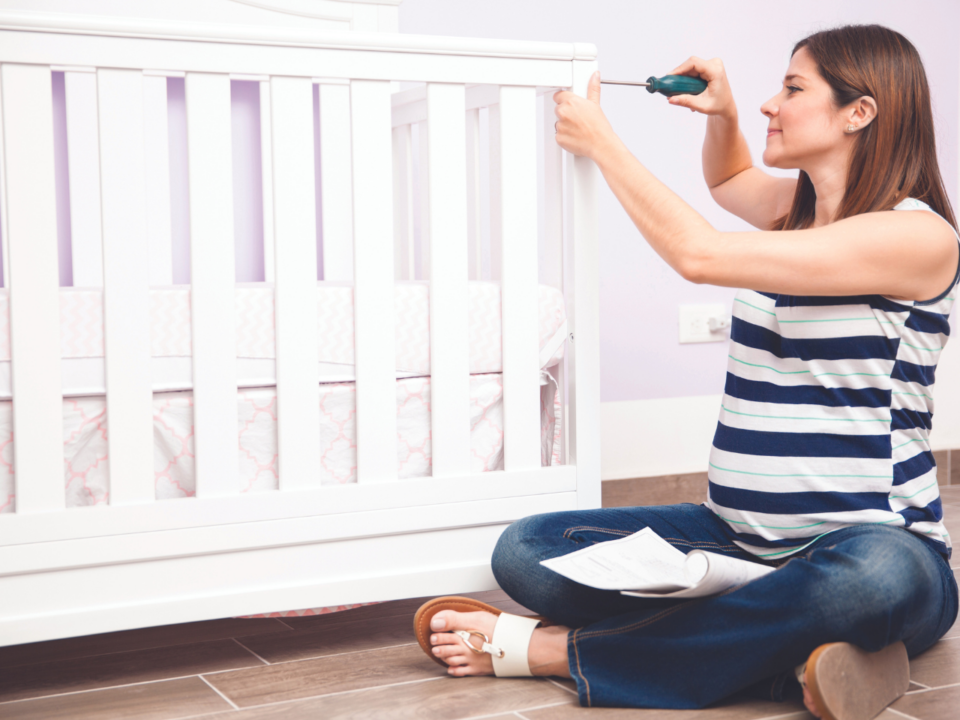Pregnancy is an exciting yet anxiety-provoking time. The ability to bring life into the world and assume care for another human is truly extraordinary. With that said, women also often feel the pressure to be fully prepared for their baby. Expecting mothers can start to prepare for their unborn child by nesting. However, nesting can sometimes develop into anxiety. Without proper coping mechanisms, this can be difficult to manage. Have no fear, help is here! Here’s the difference between nesting and anxiety, and how you can cope with both.
What is Nesting?
Nesting is a common feeling that most pregnant women experience before they have a baby. Nesting can involve a sudden urge to clean and organize. Usually, nesting occurs around the third trimester of the pregnancy. After the baby shower, the mother typically prepares the baby’s room. She washes and sorts the clothing, organizes the baby’s supplies, and cleans the room.
Researchers studied the ritual of nesting and found that it is a trait humans inherit from our primitive ancestors. Research shows that all primitive animals engage in some form of nesting. The study also demonstrated that in earlier days, pregnant women would “nest” in a corner of a cave for comfort when they knew they couldn’t outrun a predator.
Why Do Expectant Mothers Nest?
Expectant mothers nest for several reasons:
- She is bored and frustrated with pregnancy
- She wants to prepare for the baby because she knows it will take a lot of time
- She is excited and wants to be ready
Pregnancy hormones seem to play a role in the nesting ritual as well. It prompts women to have that nurturing “motherly instinct” that all mammals experience. –
The study additionally showed that women would step out of the baby’s room and disinfect screws and knobs, clean things with toothbrushes, and freshen bed linens. So when does it cross the line from nesting to anxiety? It’s important for women to understand the difference between nesting and anxiety to be able to effectively cope.
What Are Prenatal Anxiety Symptoms?
Prenatal anxiety occurs in approximately 1 out of 10 women. In these cases, it is critical to acknowledge your feelings and seek treatment with a mental health provider to care for you and your baby.
Prenatal anxiety will arise with symptoms such as:
- No appetite
- Panic attacks, which can be described as an ability to catch your breath or a feeling of doom
- Feeling like you will never catch up
- Overwhelmed emotions to the point of crying
- Inability to relax, even when you have tried
- Feeling like you will never be a good enough mother, and constantly worried about the baby
- Obsessive rituals like washing clean clothes, bottles, etc
As a mother who has experienced prenatal anxiety, Laura notes, “I think the biggest difference between nesting and anxiety is what is propelling it. If you are doing it to get things ready (like clean the clothes, organize the nursery, etc,) this is normal and needs to be done to prepare. However, if you are doing it because you have to do it and find yourself obsessing over re-folding clothes and consistently cleaning, that’s when it crosses the line into anxiety.”
How Do You Cope?
Coping with prenatal anxiety is similar to standard anxiety. Here are some tips to help before seeking treatment:
- Talk to a friend. Before seeking a counselor, try to find a friend to talk to. If you need more than a friend, know that a counselor is a professional and private person to help you.
- Exercise. Take a walk, go for a light jog, or try simple prenatal yoga at home.
- Meditate. Meditation is a useful tool to start practicing to help calm yourself down. Like any skill, it takes practice but can help if you implement it right.
How Do You Nest Safely?
It’s essential to know which coping skills are most valuable. Coping skills help you navigate stress and prepare for the unknown.
- Check in with your feelings. Are you nesting and cleaning because you’re feeling nervous about your birth? You can try pregnancy yoga, meditation, or even starting a journal for your baby.
- Watch your body mechanics. Consider changing some of your nesting activities if they cause too much strain. Aim to eliminate painting or other activities that can lead to potential harm (like climbing a ladder or heavy lifting)
- Relax when you can. Try yoga to relax your body and tension.
- Eat well. Increase your amount of fruits and vegetables.
- Make a list of things you regularly do. Aim to delegate activities where possible (think a cleaning person or grocery delivery).
- Get as much sleep as you can. Try to add naps in during the day if you are not sleeping well at night
In short, don’t ignore your feelings. If you’re feeling scared about labor and having a baby, know you are not alone. Women fear childbirth because they lack control over their delivery and don’t have all the answers to the “what ifs.” Believe in yourself and your ability to go through labor successfully and become an amazing mother. Practice breathing techniques to calm your nerves, and prepare yourself for motherhood by becoming the best version of yourself that you can be.

